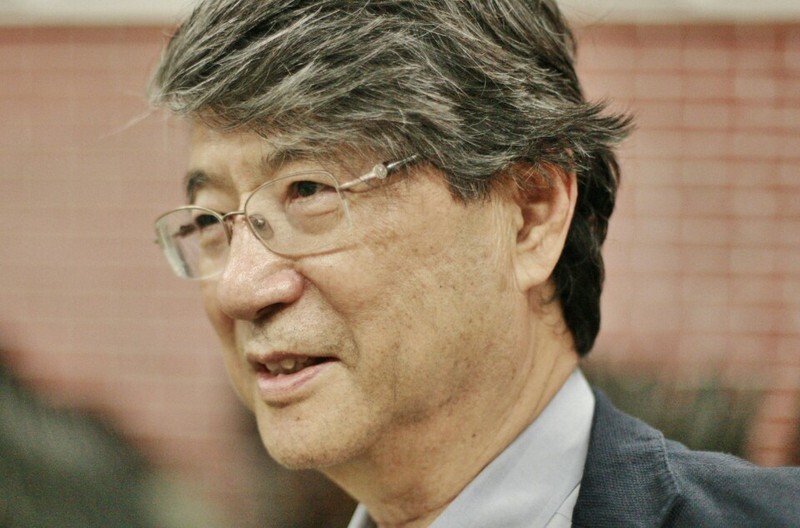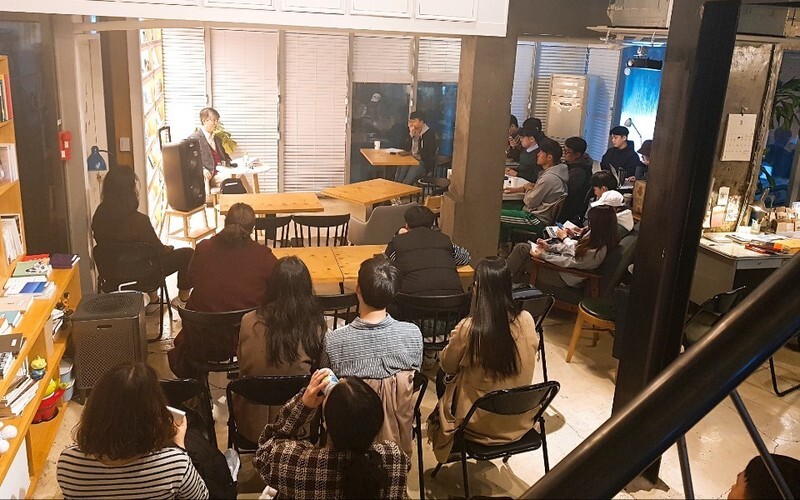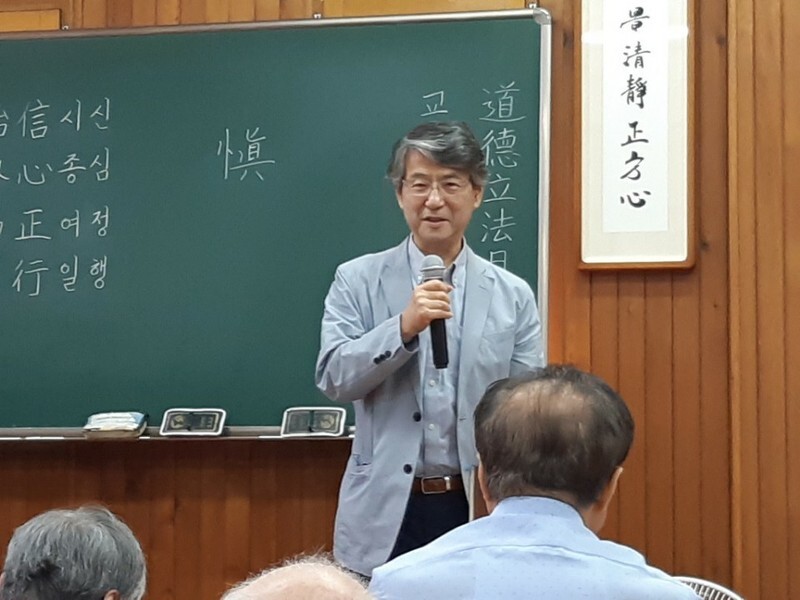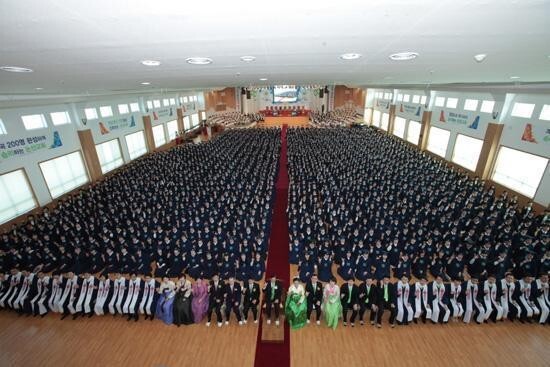hankyoreh
Links to other country sites 다른 나라 사이트 링크
[Interview] Dissecting the phenomenon of religious zealots in S. Korea

Hankyoreh (Hani): What do you think about the Shincheonji phenomenon?
Oh Kang-nam (Oh): It’s abnormal for such an unreligious religion to be running wild in the 21st century. In terms of the sociology and psychology of religion, Korea is a fascinating subject of study, since it’s bucking the overall global move away from organized religion.

Hani: What’s the reason for the rise of so many new religious movements in Korea?
Oh: New religions can be found wherever you look. It could be the effect of books claiming to contain secret knowledge such as [the Joseon Dynasty text] “Jeonggamrok prophecy”. Practically speaking, it could be caused by the psychological insecurity resulting from rapid urbanization and industrialization. In addition, people who’ve been robbed of their sense of belonging by individualism rush to religions that give them a home and make them feel like they belong.
Hani: Despite examples of profound spirituality and enlightenment, why do you think it’s the religions that are superficial, blessing-focused, selfish, and aggressive that are actually gaining ground?
Oh: Religious feeling continues to grow. At first, people think they’ve chosen religion for their own benefit. But as their religious feeling deepens, they move behind self-centeredness and orient themselves on a world we all share and a community of love. But when growth is halted, religion naturally becomes a method for achieving private gains, such as gaining wealth or getting healed. Importantly, religious leaders and political leaders don’t like to see their followers keep growing. People are easiest to control when their faith is blind and unconditional.
Hani: The people who’ve plumbed the depths of religion focus on personal experience rather than religious texts or creeds. Considering that religious people in South Korea also talk about being filled with the Holy Spirit, getting born again, and finding enlightenment, why don’t their experiences lead to changed lives and practice such as the love and mercy of Jesus and the Buddha?
Oh: If there’s no fruit, you can’t say they’re really born again or really filled with the Holy Spirit. They still haven’t escaped their own selfishness.

Hani: You were born and raised in a Christian family. What inspired you to do so much reading about Eastern religions?
Oh: Max Müller, the father of comparative religious studies, once said that a person who only knows one religion knows none at all. We need to learn about other religions, if only to gain a better understanding of our own. While the various religions may squabble about superficial differences, connections are discovered at a deeper level. That can liberate us from the self-righteous and exclusive assumption that our religion is the only one that’s absolutely correct.
Hani: What’s a philosophy or system of thought that you’ve found to be practically helpful in your family, teaching, career, and personal relationships, and who would you say is the teacher you respect the most?
Oh: All the figures who appear in “What’s Different About True Religion?” are my teachers. If I were to give a specific example, it would be Jesus and Buddha. Narrow it down a little further, and I guess I’d pick Laozi and Zhaungzi in the East and Paul Tillich and Thomas Merton in the West.
Hani: When did you face the gravest crisis in your life? What insights did you gain from that, and which philosophy made a difference?
Oh: In terms of my mental state of being, that would be when I parted ways with the Christian denomination that I’d grown up with. I’d started to foster doubts about what I’d learned about Christianity while still in middle school, but what actually drove me from the fold was the fact that I couldn’t teach its doctrines when I started lecturing at university, after receiving my doctorate in religious studies. It was around that time that I keenly felt that the most important part of religion is not clinging to doctrine but experiencing a change of awareness, as in Zen Buddhism, and that freedom consists in a life of openness and emptiness, as in Taoist philosophy.

The anachronistic view that the words of the Bible have to be taken literally gives rise to such things as the Shincheonji phenomenon.
Hani: What do you see as the problems with Protestantism in Korea?
Oh: Literalism. The anachronistic view that the words of the Bible have to be taken literally gives rise to such things as the Shincheonji phenomenon. Shincheonji followers believe and teach all 12,000 words in the Book of Revelation and pick and choose verses from throughout the Bible in order to back up their arguments. Literalism is the same as fundamentalism. The biggest problem is that literalism and fundamentalism are widespread in South Korea, even though they’re waning in the global Christian community.
Hani: The religious population is decreasing, and the number of people joining monastic orders is falling even more sharply. There are those who say that religion no longer has a place amid artificial intelligence and other developments in our high-tech civilization. What does religion mean today, and do we even need it?
Oh: Religions that cling to the world view and paradigm of a past age are bound to fade into the pages of history. The fastest-growing religious viewpoint in the West is atheism. Catholic theologian Karl Rahner said that, if Christianity doesn’t become a deep experience in the 21st century, it won’t be anything. I think that’s connected with the growing interest in meditation around the world. Phil Zuckerman, an American scholar of secular studies, has said that religion will be replaced by what he calls ‘aweism,’ a life of joy, but not religion, in which people feel reverence and awe for the mysteries of the universe.
Hani: How should we view churches that insist on holding on-site services despite the spread of the novel coronavirus?
Oh: If the God they believe in actually exists, do you think he would enjoy seeing his followers holding services in the middle of such an emergency? If there is a God who takes pleasure in services that endanger not only his followers but also society as a whole, don’t you think he ought to be dethroned? In fact, this isn’t a problem of God, but of this kind of blind faith in God.
By Cho Hyun, religion correspondent
Please direct comments or questions to [english@hani.co.kr]

Editorial・opinion
![[Column] Life on our Trisolaris [Column] Life on our Trisolaris](https://flexible.img.hani.co.kr/flexible/normal/500/300/imgdb/original/2024/0505/4817148682278544.jpg) [Column] Life on our Trisolaris
[Column] Life on our Trisolaris![[Editorial] Penalties for airing allegations against Korea’s first lady endanger free press [Editorial] Penalties for airing allegations against Korea’s first lady endanger free press](https://flexible.img.hani.co.kr/flexible/normal/500/300/imgdb/original/2024/0502/1817146398095106.jpg) [Editorial] Penalties for airing allegations against Korea’s first lady endanger free press
[Editorial] Penalties for airing allegations against Korea’s first lady endanger free press- [Editorial] Yoon must halt procurement of SM-3 interceptor missiles
- [Guest essay] Maybe Korea’s rapid population decline is an opportunity, not a crisis
- [Column] Can Yoon steer diplomacy with Russia, China back on track?
- [Column] Season 2 of special prosecutor probe may be coming to Korea soon
- [Column] Park Geun-hye déjà vu in Yoon Suk-yeol
- [Editorial] New weight of N. Korea’s nuclear threats makes dialogue all the more urgent
- [Guest essay] The real reason Korea’s new right wants to dub Rhee a founding father
- [Column] ‘Choson’: Is it time we start referring to N. Korea in its own terms?
Most viewed articles
- 160% of young Koreans see no need to have kids after marriage
- 2[Reporter’s notebook] In Min’s world, she’s the artist — and NewJeans is her art
- 3Hybe-Ador dispute shines light on pervasive issues behind K-pop’s tidy facade
- 4[Column] Life on our Trisolaris
- 5[Editorial] Penalties for airing allegations against Korea’s first lady endanger free press
- 6Presidential office warns of veto in response to opposition passing special counsel probe act
- 7S. Korea discusses participation in defense development with AUKUS alliance
- 8Vietnamese war victims speak of sexual violence by S. Korean troops for the first time
- 9Months and months of overdue wages are pushing migrant workers in Korea into debt
- 10Inside the law for a special counsel probe over a Korean Marine’s death